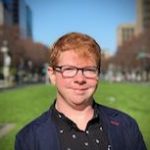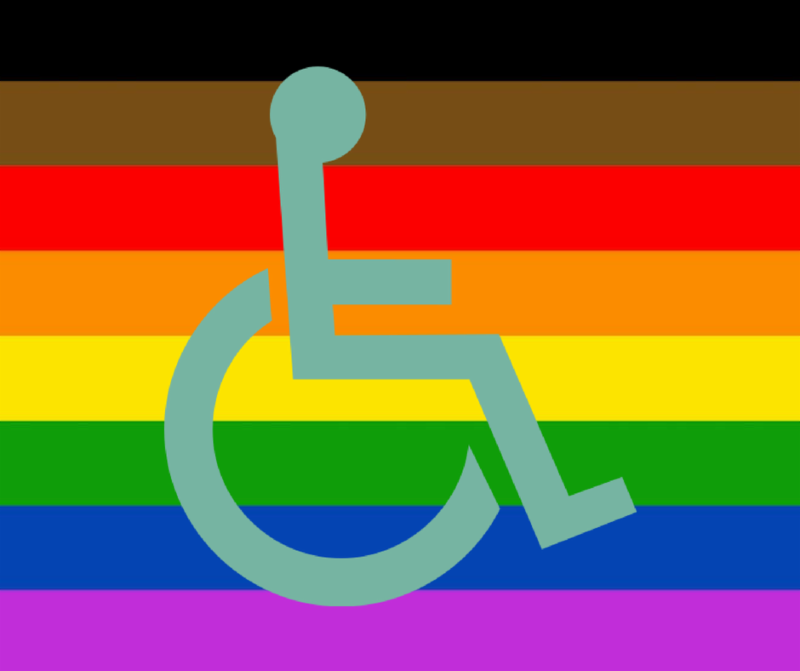June is LGBTQ pride month across the nation. Though Pride has grown into a global series of street carnivals complete with brightly colored parades it is important to remember its origin. Pride started as a commemoration of the 1969 Stonewall riot in New York city in which LGBTQ people stood up and demanded an end to the harsh laws of the time which forced them to live their lives either entirely denying their identity or sequestered away from “normal” people at the fringes of society. This fight for acceptance and inclusion is one that we as members of the disability community can easily relate to regardless of our gender identity or sexual preferences. Pride began as and remains a fight to live freely and authentically within society.
As we work within the disability community for access and inclusion for people with disabilities we must keep in mind that many members of the disability community are also members of the LGBTQ community. Civil rights advocate and professor of law Kimberlé Crenshaw developed the concept of intersectionality to describe the way that people who belong to more than one marginalized group face unique challenges on their journeys to equality. This is certainly true of LGBTQ people with disabilities.
Being inclusive to people with different identities can be intimidating. We worry that we might say or do the wrong thing and so we are silent. Information can make this silence much easier to break.
To gain insight into the unique challenges faced by LGBTQ people with disabilities in 2017 the Arc and UCP Intellectual and Developmental Disabilities Public Policy Conference offered an insightful panel discussion on the subject. You can watch it here:
Watch the complete LGBTQ Panel from The Arc & UCP Public Policy Conference 2017
Another source of information for people interested in learning more about how to be inclusive of the LGBTQ people in your life is the PFLAG handbook Coming Out as a Supporter linked here.
Once you have watched and read the resources above remember that Pride month is both a serious memorial of human rights activism, and also a celebration of people precisely as they are. So get out there, make your community more welcoming of LGBTQ people with disabilities and celebrate together.

Christian McMahon, Communications Specialist, the Arc of California


